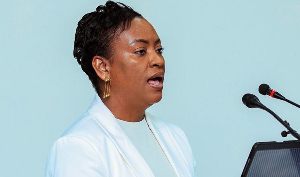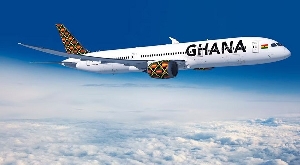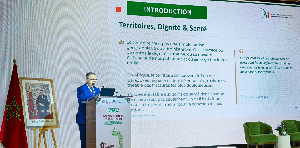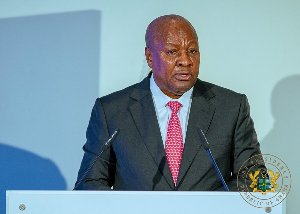Writes Prince Dornu-Leiku
Third time lucky, the cliché has been repeated on the success story of Ghana’s Black Satellites in winning the U-20 FIFA World Cup. Twice in 1993 and 2001, the Black Satellites did reach the final, failing to seal the title on both occasions. That is why it could not happen for the third time, not according to our beliefs in Ghana. The belief that a man cannot be denied at the third time of asking. So we were all very confident going into last week’s final against Brazil, much that when we went down by a man after just 37 minutes of football, the trophy still headed to Accra, the disadvantage that transcended into extra time and penalties notwithstanding. All after a shoot-out that twice rewarded the Brazilians the advantage.
It did happen that Egypt which won the 2008 African Cup of Nations right here in Accra, provided the reversal of setting for Ghana to chalk this success, the first by an African side in the history of the 32 year old competition. So what does the victory signify and mean for the mother continent, the question asks. Remember Africa hosts football’s grandest global showpiece next June and July in South Africa as well as the U-17 World Cup which kicks off in Nigeria this Saturday.
The South Africa hosts and Egypt have already failed to garner in any honours for the continent when they played against six other continental and global champions in the Confederations Cup back in June. By making sure an African team won the ultimate in Egypt 2009, Ghana have clearly laid down the marker for the rest of the continent. It is simple: we have to make sure the trophy of the competition we are hosting stays right here in Africa, it must not leave.
Definitely we shall be seeing if Nigeria can successfully defend on home soil the U-17 World Cup they won for the third time two years ago. For their pedigree in FIFA youth tournaments and status as hosts, Nigeria should be streets ahead the overwhelming favourites to lift their own World Cup. If indeed the Flying Eaglets can do that or another of the African sides can emulate Ghana’s Egypt 2009 feat, will only become clear on Nigeria 2009 final match day of November 15.
But the biggest marker the Black Satellites have set is for the six senior national teams which will fly high the flag of Africa come SA 2010. Yes a record 6 African countries at the FIFA World Cup. Ghana, Ivory Coast and hosts South Africa who already have their tickets as well as Egypt or Algeria, Nigeria or Kenya and Cameroon or Gabon, must all know by now the message the Black Satellites’ victory in the U-20 World Cup sends down. That one of the six should be lifting the coveted FIFA World Cup trophy come July 11, 2010 cannot be overemphasized.
Now the big question is can any of these teams do it? Yes should be a ready answer but confidence in it may be another problem altogether. For Africa has never won the World Cup and indeed no side from the continent has surpassed the last eight in the history of the tournament, but teams from the continent have endlessly chalked stunning and remarkable results. Why the continent’s sides have not done any better than Cameroon in 1990 and Senegal 12 years later, has variously been due to a lack of ambition, ill-discipline, ill-organisation and sometimes unfair officiating but never for a lack of talents.
1934 in Italy, the second edition of the World Cup was the setting for Africa’s first escapade unto the biggest stage. Egypt were the pacesetters earning their passage with a quick dismissal of Palestine in the only qualifier they needed to make it to the World Cup. So on May 27, 1934 in Naples, the Pharaohs became the first side from the continent to play in the global fiesta, though the 4-2 defeat to Hungary meant it was also their only game.
The Egyptians will not return unto the World Cup stage again until 1990, by which time Morocco in 1970 and 1986, Tunisia in 1978, Cameroon and Algeria in 1982 had all laid down a marker for the continent by recording great results. First, to earn an automatic place at the finals, Africa boycotted the 1966 World Cup qualifiers in protest against the half slot which pitted the eventual winner of the continent’s various stages of qualifiers in a play-off place with a European side. Morocco who had lost both home and away to Spain in the play-offs for Chile 1962, became the first from the continent to play at the World Cup in the modern era after the continent’s 1966 boycott bore the fruits of an automatic spot for Mexico 1970.
Morocco failed to make the second round but the Atlas Lions hardly disgraced grabbing a point and scoring twice in three games against Germany, Peru and Bulgaria. Zaire, known today as the Democratic Republic of the Congo, shown brightest in African football in the early 1970s and earned Africa’s ticket to Germany’74. They also underlined their tag by winning the Nations’ Cup of that year but internal wrangling over money played a great part in their humiliating World Cup outing. They lost all three games, raking in 14 goals among them a 0-9 defeat to Yugoslavia, but Zaire failed to hit back, not even one goal. They had recorded Africa’s worst ever performance with ease.
Tunisia will right the wrongs of Zaire by grabbing Africa’s first ever win in 1978, outclassing Mexico 3-1 before Cameroon and Algeria also added their bits in 1982. Cameroon became the first and remain the only African team never to lose a game at a World Cup by drawing all three games at Spain’82. In fact, the Indomitable Lions were beaten to a second round qualification by eventual champions Italy only on superior goals scored. Algeria also re-wrote the record books at the same World Cup claiming two wins in three games, famously beating Germany 2-1. A match of convenience which’s end saw Germany beat Austria 1-0 however knocked the Desert Foxes out on goals as all three sides finished level on points.
But Africa’s breakthrough came in 1986 when Morocco became the first side from the continent to make the second round. A Roger Milla inspired Cameroon did wonders in 1990 reaching the last eight amid beating Diego Maradona’s Argentina on the way. Nigeria qualified for the first time in 1994 and as they will again do in 1998, became the continent’s standard bearers making it out of the group stages on both occasions. The Teranga Lions of Senegal were the heroes of Korea/Japan 2002 beating defending champions and colonial masters France on the way to the quarter finals.
The Black Stars of course were Africa’s heroes last time out in Germany 2006 before bowing out in the second round to Brazil. 3-0 the result read that day, the same result that has shown on the score board on every of the other three occasions African teams faced Brazil in the FIFA World Cup. Zaire (1974), Cameroon (1994), Morocco (1998) previously all fell by the identical result to the record 5 time world champions. Brazil definitely are the standard by which all other national teams are measured, so can Africa argue against any assertion that our football teams are still way behind winning the ultimate in world football if we can’t beat Brazil? Yes, no African team has ever beaten the Brazilians at the World Cup but Cameroon did beat them in the Confederations Cup back in 2003. Cameroon, Ghana and Nigeria have also variously at U-17, U-20 and Olympic Games levels beaten Brazil. Egypt and South Africa both battled the Brazilians in last June’s Confederations’ Cup and came out with flying colours despite losing.
Now add it up to the fact that the Black Satellites did beat Brazil to win the U-20 World Cup after previously falling at the same stage to the same opponents in 1993, and the Brazil jinx is on the horizon to get broken. African football has come of age and African players play for top clubs in Europe amid some being very key components of their sides. If they plan well, inculcate discipline, organization, hard work and determination, there is no doubt that Africa has national teams who can stand up to the fight against the Brazils, Italys, Frances, Argentinas, Spains and Germanys of this football world.
Whilst Ghana and Africa continue to glow in the historic U-20 World Cup win by the Black Satellites, we cannot run away from the marker the win lays down for us all as South Africa 2010 comes full square next June. What it means is that, the battle to plant Africa at the top of the football world map has indeed, really just begun. The marker has been set, now the measurement begins.
Sports Features of Friday, 23 October 2009
Source: Dornu-Leiku, Prince












